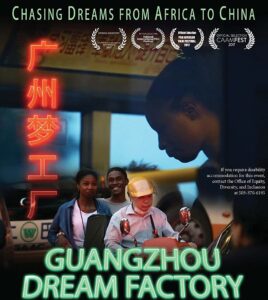2022 Hatfield Lecture & Events

“Translating language, experience, bodies across space and time, thought and culture—Luiselli wants us to join in this work. Tell Me How It Ends calls for a wholesale reimagining of both the forces that have shaped contemporary immigration into the United States as well as the way many Americans, disconnected from fact, picture it. It calls, moreover, for action.”
—Brooklyn Magazine
Valeria Luiselli was born Mexico City in 1983 and grew up in South Africa. The author of Sidewalks; Faces in the Crowd; The Story of My Teeth; Tell Me How It Ends: An Essay in Forty Questions and Lost Children Archive, her work has been translated into more than twenty languages and has appeared in publications including the New York Times, the New Yorker, Granta, and McSweeney’s. She is a Writer in Residence at Bard College and lives in New York City. Luiselli has been the recipient a number of awards, including the Los Angeles Times Book Prize for Best Fiction (The Story of My Teeth); the Carnegie Medal for Excellence in Fiction (Lost Children Archive); the National Book Foundation’s “5 under 35” award; a Vilcek Prize for Creative Promise in Literature and a MacArthur Fellowship.
Valeria Luiselli will be presenting the 2022 Hatfield Lecture, “Migration Stories,” on March 31st at 7:00pm in room 104, Kirby Hall of Civil Rights.
Co-sponsored by the Office of Intercultural Development, the English Department and the Department of Anthropology and Sociology.
This event will be recorded. If you are unable to attend the lecture in-person and would like access to the recording, please register at this link.
A series of events will be offered in the lead up to her visit, including:
A Book Discussion on two of Luiselli’s works, Tell Me How It Ends: An Essay in Forty Questions and Lost Children Archive, will be held on March 24th at 12:00pm in the Gendebien Room (206) in Skillman Library. Tell Me How It Ends: An Essay in Forty Questions can be accessed as an e-book through the library’s ProQuest subscription at this link. A physical copy of Lost Children Archive is available to check-out from Skillman Library.
A Film Series on Migration (co-sponsored by the Lafayette College Libraries, Department of International Affairs, IA Club, Refugee Action, and Lafayette College Women in Law) will be held during the month of March, featuring the following films and talk-backs:
 The Undocumented Lawyer
The Undocumented Lawyer
Tuesday March 1st @ 7:30pm in Buck Hall
Q&A with Lizbeth Mateo The Guangzhou Dream Factory
The Guangzhou Dream Factory
Wednesday, March 9th @ 7:30pm in Buck Hall
Q&A with Prof. Douglas de Toledo Piza & Prof. Caleb Galemore, International Affairs One if By Land
One if By Land
Tuesday March 22nd @ 7:30pm in Buck Hall
Q&A with Prof. Nandini Sikand, Film and Media Studies
An exhibit – Transplantada/Transplanted – will take place in the Williams Center for the Arts through April 5th. The exhibit has works by Juana Cordova and Natalia Nakazawa on display, and evokes connections between the journey of these plants and those of immigrants who leave their homes, in search of better conditions and relief from wars and poverty.